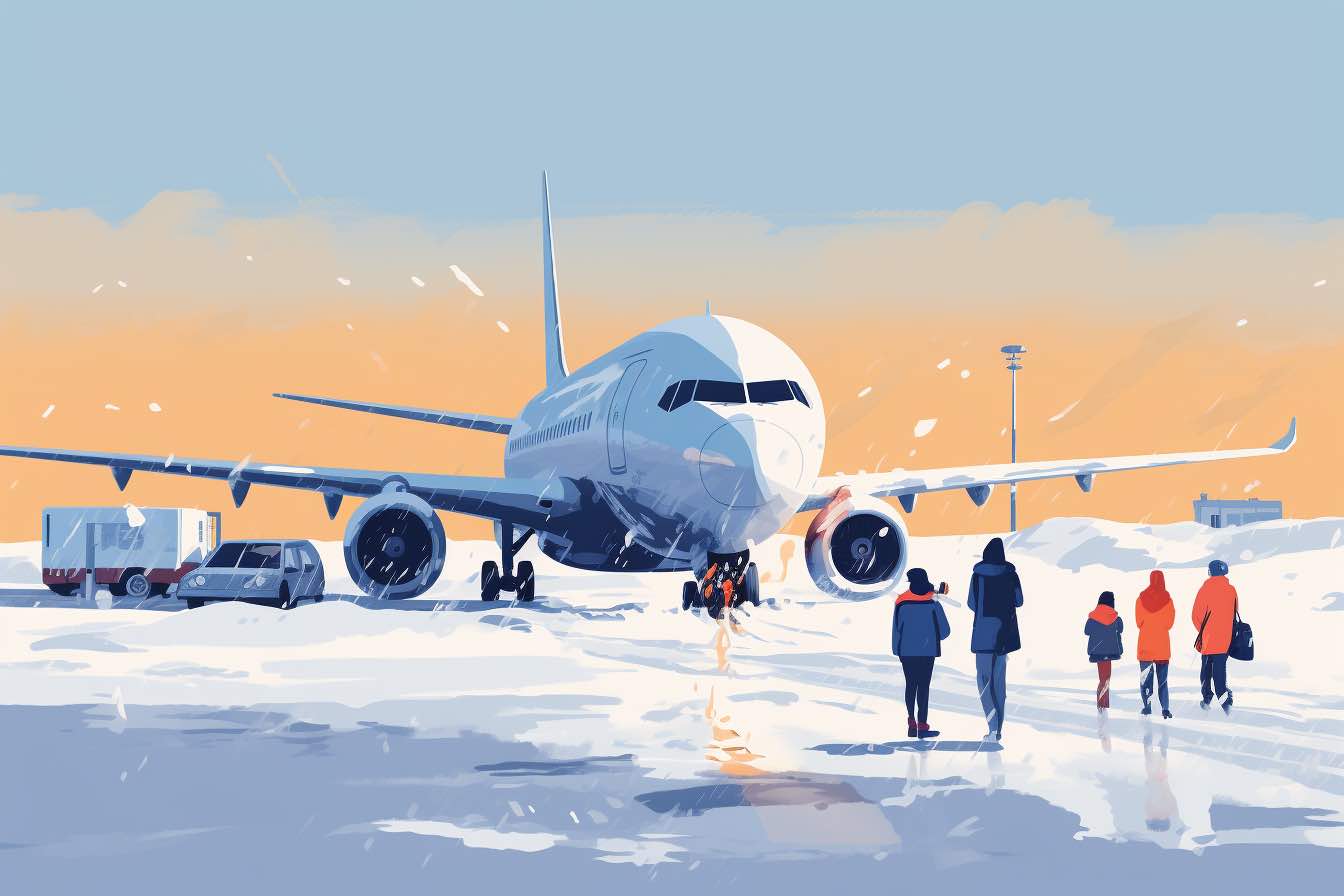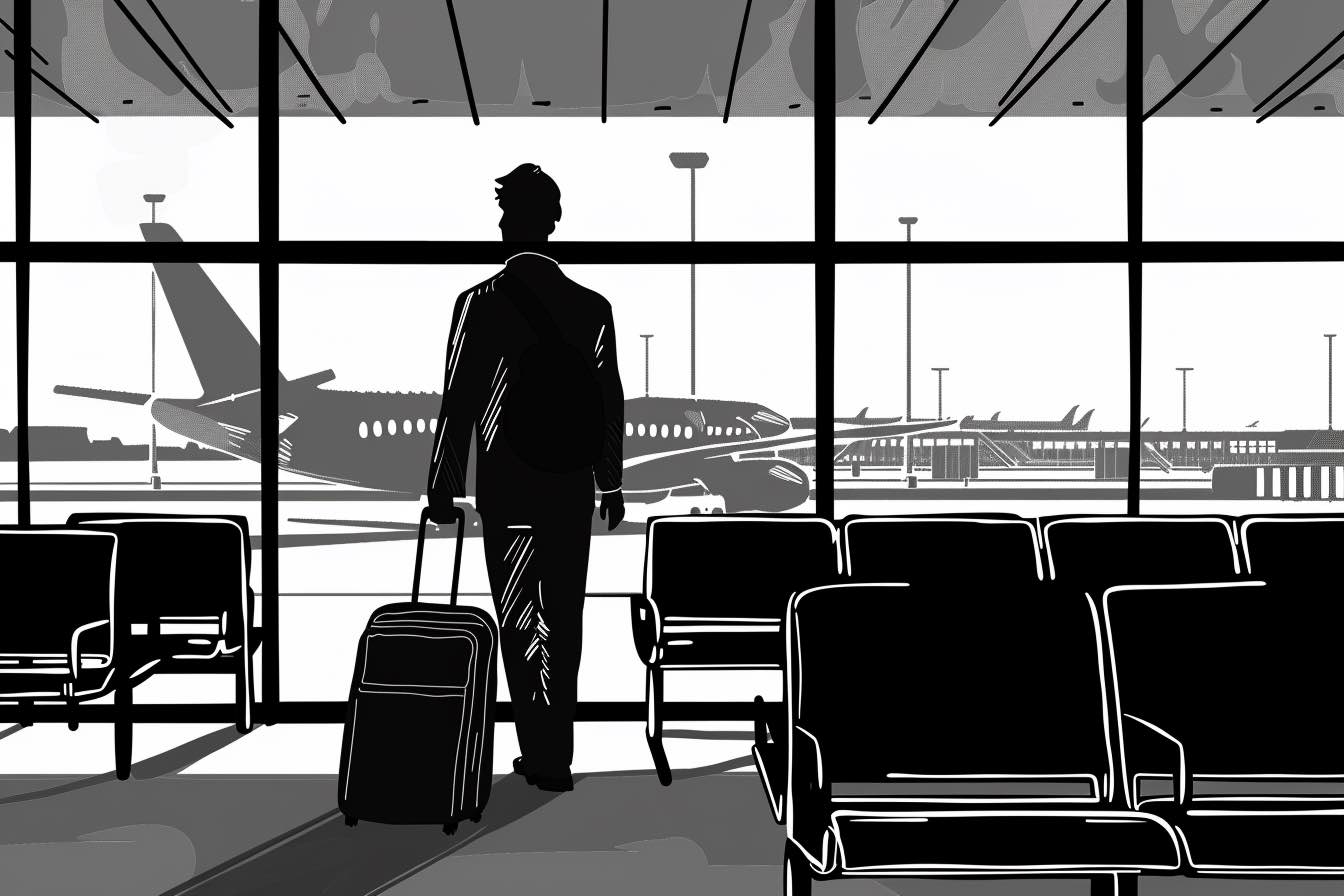Chances are, you’re planning to travel somewhere during the summer of 2024. And you’ve probably also seen the polls that predict massive crowds and high prices.
Don’t worry, the polls might be wrong. (Always a good thing to keep in mind during an election year.)
I’ve written hundreds of stories about holiday travel, from advice on finding bargain airfares to traveling with kids, to coping with travel crowds, to improving travel, one good idea at a time.
And I can tell you that the ultimate guide to summer travel is complicated. I’ll help you sort it out.
The upcoming summer holidays — Memorial Day to Labor Day — will probably break new records. But they don’t have to break the bank.
- Airfares are falling. Hopper says domestic roundtrip airfares for summer are averaging $325 per ticket, which is down 5 percent from last year.
- U.S. hotel rates are down. They’ve fallen 7 percent to an average of $304 per night, according to Kayak.
- Car rental prices are up. Average domestic car rental rates are up 10 percent this summer to $113 per day, according to Kayak.
- Fuel prices are about the same as they were a year ago ($3.59 per gallon). Energy prices are notoriously hard to predict.
The numbers change if you travel internationally this summer. For example, flights to Europe are have fallen 12 percent from last year to $1,012. But flights to South America are up 4 percent and flights to Canada have risen 5 percent. And internationally, hotel rates are up 2 percent to $314 per night.
Even though this promises to be one of the busiest and most expensive travel holiday periods, some things never change.
The most important holiday travel guidance still applies to your upcoming trip. There are certain quirks about each holiday (I’ll get to those in a minute). There are better ways to plan a holiday trip. And — you won’t see this anywhere else — there’s an enormous warning label that every holiday advice story should carry.
How is the summer 2024 season different?
The summer travel season promises to be much more conventional than last year. The “revenge” travel trend is history, and most Americans are heading to the same destinations. In the U.S., they’re going to the same touristy destinations.
Orlando, Seattle and Boston are the top cities domestically, according to a new survey by Allianz. London, Paris and Dublin rank highest on the list of European destinations.
If you’re headed to Europe, there are two things to avoid unless you are planning to attend: The Summer Olympics in July and the Taylor Swift concert tour. These two events will push prices into the stratosphere and generate next-level crowds.
All told, the summer 2024 travel season feels more normal than it has in years. The crowds and prices are more predictable than they’ve been at any time since the pandemic.
What are the most important travel tips for the summer holidays?
If by “important” you mean the most commonly dispensed, we can narrow the top holiday travel tips down to just a few items:
Don’t wait until the last minute to book your travel
Travel companies raise their prices as you get closer to your travel date. Don’t wait until the day before your trip to book a flight or hotel room — or you’ll pay for it.
Avoid peak travel times
You’ll pay less because there’s less demand and you’ll steer clear of big crowds and possible cancellations. You don’t want to be one of those people standing in a security line that goes out the terminal door.
Pack light
Don’t take the kitchen sink with you, especially when planes and trains are extremely crowded. You might end up having to check your bag — and losing it.
Give your car a checkup
Nine out of ten vacations in the United States take place by car. If you’re driving long distances, make sure your vehicle is up to the drive.
A warning about holiday travel advice
The internet is littered with terrible holiday recommendations. Believe me, as someone who has read countless articles on holiday travel advice — and written almost as many — I know. But the holiday travel tips you’re likely to read and hear can also be dangerously flawed.
It relies on unproven sources
Take the widely cited AAA forecast. Ever notice its methodology? Not only does AAA estimate the number of travelers, but it also fails to verify if its previous estimates were correct. In other words, “Trust us, we’re AAA.” Lately, travel journalists have been relying on a single source, Hopper, for price forecasts. But again, no one is auditing Hopper’s data scientists, nor are they reporting the actual fares paid after the holiday.
It assumes your travel intentions
The travel advice you read assumes so much about you. For starters, it believes you’re traveling on one of the seven major holidays. But what if you’re going back to Israel for Sukkot or seeing family for Diwali in India? The advice also assumes you are average — traveling with your spouse and kids and visiting relatives. The “experts” dispensing holiday travel advice don’t know who you are. It would be a mistake to assume they do.
It assumes your mode of transportation
Most travel experts assume you will fly to your destination and rent a car, because that is how they travel. Truth is, most Americans drive to their destination in their own car. A helpful holiday travel guide would probably bore the rest of the readers into a daze, because it would contain tips about finding cheap gas, affordable lodging and restaurants. In fact, strike that last one — most Americans stop at the grocery store to buy their food. When is the last time you saw a holiday travel story about reliable grocery stores?
In other words, take any story about holiday travel with a grain of salt — including this one.
What are major travel holidays?
In the United States, there are seven holiday travel periods. Here they are, along with my holiday travel guidance for booking and navigating them:
New Year’s Day
The first big travel holiday period of the year lasts only a few days, from December 30 through January 2. Of all the winter holidays (Thanksgiving, Christmas, New Year’s), it is the quietest.
Noteworthy event: Toward the end of the year, airlines start their fare sales. The first week of January is often called “dead week” because it’s so quiet, which means more deals on hotels, tours and other activities.
Here’s my ultimate guide to holiday travel.
Spring break
This is a sprawling travel holiday that starts at the end of February and extends to early April. School districts give their students a week off during the spring — hence the name spring break — which means everyone from one region is possibly headed to the airport on the same day to fly out. There’s also a herd mentality for spring break vacations. Warm-weather destinations like Cancun, Las Vegas and Orlando show up on the same top 10 lists year after year.
Noteworthy event: We had the busiest spring break in history in 2023. It could be a sign of things to come.
Here’s my ultimate guide to spring break travel.
Memorial Day
Memorial Day is technically a long weekend — Friday to Monday — but lately, travelers have turned it into a ten-day vacation period (starting on Friday and ending the following Sunday). This is the unofficial start of the summer travel season, so you’ll likely see travel “experts” projecting trends for June, July and August.
Noteworthy event: Most Memorial Day vacations are by car, despite what you might read or see on TV,
Fourth of July
This is the official start of the summer travel season. So, while the Fourth of July period is just a long weekend, the actual holiday period stretches well into the next two months. This is the Big One. But it ebbs and flows. Most Americans take shorter vacations in July and are gone for longer in August. They prefer to plan trips to Europe in the early part of the summer to avoid the traditional European vacation period in August.
Noteworthy event: Weather disruptions are at their worst in early July (thunderstorms) for air travelers.
Labor Day
This is another three-day holiday, a bookend to the summer vacation period. It is the last chance to go to the beach or the lake before the weather gets cold, and the kids return to school.
Noteworthy event: Prices typically fall off a cliff in early September, so people without kids in school are starting to take advantage of the two or three weeks after Labor Day for good deals and plenty of availability.
Here’s my ultimate guide to fall travel.
Thanksgiving
If you can imagine the high prices and chaos of summer condensed into a single week, that’s Thanksgiving. It’s an 11-day period that runs from the Thursday before Thanksgiving to Cyber Monday. It is busy — and expensive. The Monday before Thanksgiving and the Friday after Thanksgiving are the best days to travel by car. If you’re considering visiting the U.S., avoid the last week of November.
Noteworthy event: In recent years, many travelers have tried to escape the crowds by traveling on the holiday — Thursday. Bottom line: There is no escape from the Thanksgiving crowds, unless you leave the country.
Here’s my ultimate guide to holiday travel.
Christmas
The Christmas holiday is spread over a week to 10 days, with Christmas Eve, Christmas Day, and the previous and following weekends affected. The last big travel holiday of the year tends to have the most treacherous weather, at least in the U.S., with ice and snow leading to flight delays and cancellations and snarling traffic in large cities. And since Christmas is celebrated worldwide, the only place you can go to escape the chaos is Asia or the Middle East.
Noteworthy event: The Christmas holiday has started to encroach on New Year’s, at least in terms of pricing and availability. Don’t expect a lull during the last week of December. Aim for the second weekend in January if you want better prices and less traffic.
What are the busiest travel days during the holidays?
If you have to travel during the holidays, which days should you avoid?
For driving, the answer is simple and fairly consistent across holidays. The last weekday before a holiday is typically the busiest, with traffic problems in the early afternoon as motorists try to get an early start on their vacation. The return is similar, except that travelers tend to wait until the evening of the last weekend day of the holiday.
So for Thanksgiving, you might see unusually high traffic on Tuesday or Wednesday before the holiday and heavy traffic on Sunday evening.
The best times to fly for the latest Thanksgiving period were the Monday before Thanksgiving and the holiday itself. Those are the least busy and expensive days to fly, and would have saved you $100 per ticket, according to the airfare app Hopper. If you flew on Black Friday, you could have saved $175 off your ticket price. Returning the week after Thanksgiving on Tuesday or Wednesday could have saved you as much as $270 per ticket.
Same thing goes for Christmas. By flying the Monday or Tuesday before Christmas, you could avoid the herds headed to the airport and save $120 on your ticket. Departing on Christmas Eve would save you about $100 this year. Returning the Tuesday or Wednesday after Christmas Day can net you a $40 per ticket savings.
When is the best time to book holiday travel?
The sooner, the better. Not waiting until the last minute to book your trip is often not enough. You need to start thinking of your destination and mode of transport weeks — or even months — ahead of time.
Airlines
Generally, airfares are lowest three to six months before your departure. Airlines raise their fares 21 days, 14 days and 7 days before your departure. So if you’re looking for a cheap airline ticket, you’ll want to start thinking about it soon. And here’s another general rule: The longer the flight, the earlier you should start looking. So if you’re considering traveling to Australia or the Middle East, start tracking fares with Expedia or Google Flights at least six months before your scheduled departure.
But it can get complicated. Rearch by Google suggests the best time to book depends on the day of departure, destination and routing. For the cheapest flight, choose midweek and be open to a connecting flight. (Nonstop flights are about 20 percent more expensive, on average.)
The price of a domestic flight is historically at its lowest 21 to 60 days out, with average fares bottoming out 44 days before departure. But the patterns change during the holidays. During Thanksgiving and Christmas, the lowest fares are 36 to 74 days before departure, hitting their lowest point 52 days out.
Cruises
Like airfares, cruise prices vary based on where you’re sailing, the type of vessel and length of the sailing. So, for example, a Christmas cruise to Bermuda might have a premium price, but a repositioning cruise from Miami to Long Beach at the end of spring break might be extra cheap.
Cruise fares don’t change as often as airfares. The big “sale” period is typically wave season, which runs from January to March. However, wave season has started earlier in recent years, with big sales in December and even November. Again, track your desired fare through Cruise Critic or the Shipmate app to find the lowest price.
Hotels
Hotels also offer advance purchase discounts, but it pricing can vary. During periods of high demand, like Christmas and summer, hotels sell out months and sometimes even years in advance. Resorts can impose rules like minimum nights and make the reservations nonrefundable.
But if you’re looking for accommodations in a market with a lot of hotels, you might be OK to wait until almost the last minute to book. A recent study found that the cheapest hotel rooms could be found just 15 days before your arrival.
My advice: Make a fully refundable reservation three months in advance. Then track the room on an app like Hopper, Google or Rebookey to ensure you got the best price. Set a reminder 15 days before your arrival to check your hotel rate, too.
Summer travel advice: book early, avoid the crowds
Stop me if you’ve already heard this: When it comes to planning your summer vacation, you’ll want to book early and avoid the crowds. That’s never been more true than this summer, which will be one of the most conventional — and crowded — in years, if not ever.




